Jonathan Müller
C++ Features You Might Not Know
#1about 1 minute
Understanding commutative array indexing in C++
The built-in array index operator is commutative because it is defined in terms of pointer arithmetic, allowing for unusual but valid syntax like `index[array]`.
#2about 1 minute
Using the unary plus operator for type promotion
The unary plus operator can be used to trigger integral promotions, convert enums to their underlying type, and decay arrays or lambdas to function pointers.
#3about 1 minute
Leveraging the comma operator with fold expressions
The comma operator evaluates expressions from left to right, making it a powerful tool for applying an operation to each element of a parameter pack using a fold expression.
#4about 4 minutes
Exploring quirks in C++ control flow syntax
The `else if` construct is just an `else` followed by an `if` statement, and `switch` statements allow for unusual structures like placing the default case first or implementing Duff's device.
#5about 2 minutes
Handling floating-point exceptions and NaN values
C++ provides functions to test for floating-point exceptions like division by zero and to create specific "Not a Number" (NaN) values, which can be used for techniques like NaN boxing.
#6about 1 minute
The flexibility of declaration specifier order
Declaration specifiers like `const`, `unsigned`, `static`, and `inline` can appear in any order before the type name, allowing for unconventional but valid declarations.
#7about 1 minute
Decoding complex C++ declarators
The declarator part of a declaration, which includes the name and operators like `*` or `()`, can be combined to declare pointers, variables, and functions in a single statement.
#8about 1 minute
Using function try blocks in constructors
Function try blocks are essential for catching exceptions thrown from a constructor's member initializer list, as a regular try-catch block cannot surround it.
#9about 1 minute
The overlooked `std::valarray` for vector math
`std::valarray` is a standard library container designed for efficient, element-wise numerical operations and can be a good alternative to custom vector types for mathematical computations.
#10about 1 minute
Finding the most derived object with `dynamic_cast`
Using `dynamic_cast<void*>` on a pointer to a base class returns the address of the most derived object in the hierarchy, which is useful for type-erasure implementations.
#11about 2 minutes
Leveraging the common initial sequence in unions
The common initial sequence rule allows reading non-active members of a union if they share the same initial layout, enabling space optimization by overlaying common fields.
#12about 2 minutes
Undefined behavior in signed integer arithmetic
Signed integer overflow is undefined behavior in C++, which can occur not only in addition and multiplication but also in specific division cases like `INT_MIN / -1`.
#13about 3 minutes
The `sizeof` operator precedence puzzle
The `sizeof` operator has lower precedence than the array index operator, leading to surprising results where `sizeof +a[i]` is parsed as `sizeof(+(a[i]))`.
Related jobs
Jobs that call for the skills explored in this talk.
IGEL Technology GmbH
Bremen, Germany
Senior
C++
Powershell
Hubert Burda Media
München, Germany
€80-95K
Intermediate
Senior
JavaScript
Node.js
+1
Matching moments
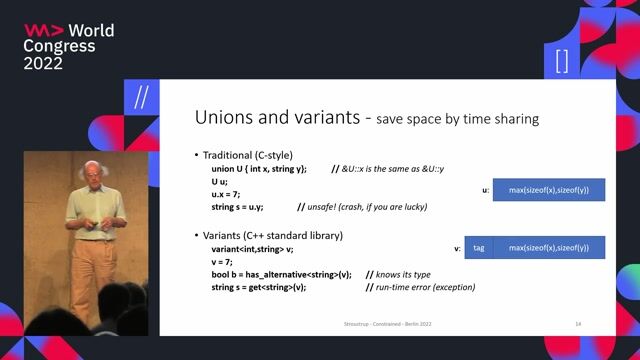
07:50 MIN
Using modern language features for safer code
C++ in constrained environments

05:24 MIN
Debunking common myths about C++ in constrained systems
C++ in constrained environments

06:50 MIN
C++ availability, ecosystem, and backwards compatibility
101 brilliant things of C++

07:24 MIN
Q&A on local error handling and C++23 features
C++ in constrained environments
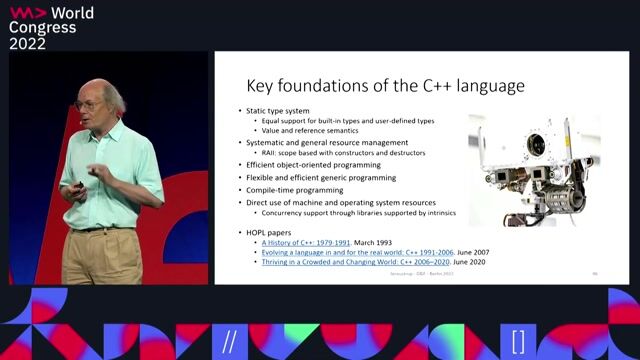
08:47 MIN
Q&A on language design, Rust, and the future of C++
The Design and Evolution of C++
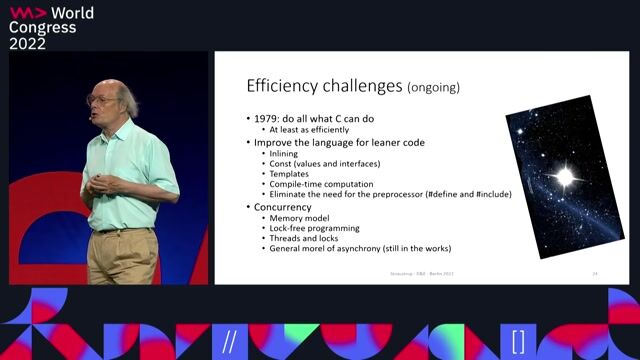
04:40 MIN
Core strategies for achieving high performance
The Design and Evolution of C++

07:52 MIN
Modern C++ evolution and the burden of backward compatibility
Eternal Sunshine of the Spotless Programming Language

07:25 MIN
Core design principles and the language evolution trilemma
The Design and Evolution of C++
Featured Partners
Related Videos
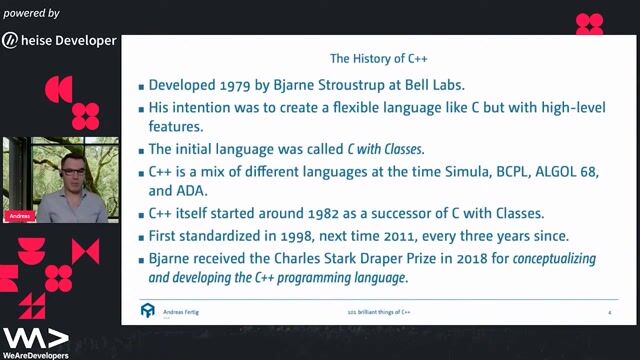 45:27
45:27101 brilliant things of C++
Andreas Fertig
 1:00:16
1:00:16C++ in constrained environments
Bjarne Stroustrup
 1:01:15
1:01:15The Design and Evolution of C++
Bjarne Stroustrup
 28:07
28:07An (In-)Complete Guide to C++ Object Lifetimes
Jonathan Müller
 24:17
24:17The C++ rvalue lifetime disaster
Arno Schoedl
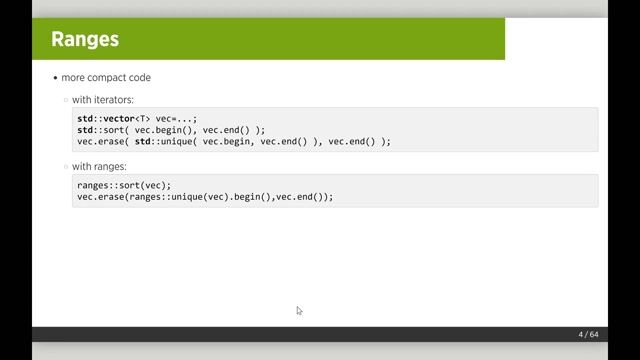 26:12
26:12Why Iterators Got It All Wrong — and what we should use instead
Arno Schödl
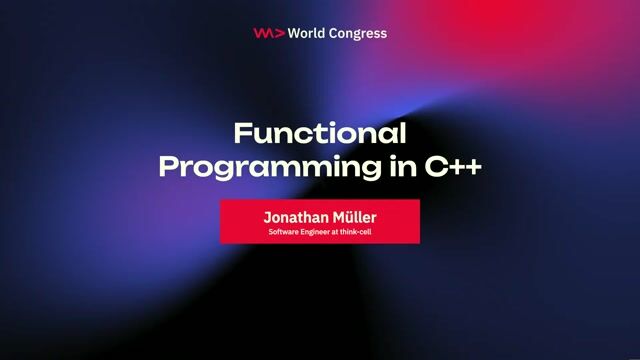 26:54
26:54Functional Programming in C++
Jonathan Müller
 27:06
27:06Best of the Worst – the most awful anti-features in JavaScript, ranked!
Peter Kröner
Related Articles
View all articles



From learning to earning
Jobs that call for the skills explored in this talk.

&why GmbH
Berlin, Germany
€50-70K
Junior
Intermediate
Senior
React
Next.js
TypeScript



SAP AG
Garching b. München, Germany
Senior
C++
Azure
DevOps
Docker
Jenkins
+4




